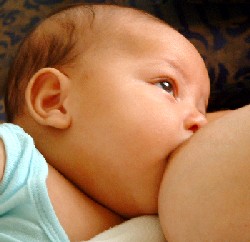Women who don’t breastfeed are found to have significantly higher rates of type 2 diabetes. Researchers say breastfeeding reduces belly fat, lowering the chances of type 2 diabetes later in life, yet few people recognize the connection.
Breastfeeding for a month or longer appears to reduce a woman's risk of getting diabetes later in life, according to a new study published in The American Journal of Medicine. The researchers evaluated data on 2,233 women. Of those, 405 were not mothers, 1,125 were mothers who breastfed for at least a month, and 703 were mothers who had never breastfed.
Study results showed that the risk of getting a diagnosis of type 2 diabetes for women who breastfed all their children for a month or longer was similar to that of women who had not given birth. But mothers who had never breastfed were nearly twice as likely to develop diabetes as women who had never given birth. Moms who never exclusively breastfed were about 1.4 times as likely to develop diabetes as women who breastfed exclusively for one to three months.
This relation was found even after controlling for factors such as weight, physical activity, and family history of diabetes.
The lower incidence of type 2 diabetes found among women studied adds to a growing body of evidence that breastfeeding should be supported. Women who give birth and fail to breastfeed may be putting themselves at risk for developing type 2 diabetes later in life and denying their infants important long term health benefits.
The American Journal of Medicine

Your Baby checkup
what are the vaccinations that he should have taken until now?
Generate a report for my baby.
Track Your Baby Vaccinations
Find Your Baby name
Mohandessin
01002195777
01000012400
0233048350
Beverly Hills
01000012900
0238576831
El Tagamo3
Al Sheikh Zayed
02- 38514031
01000608597


